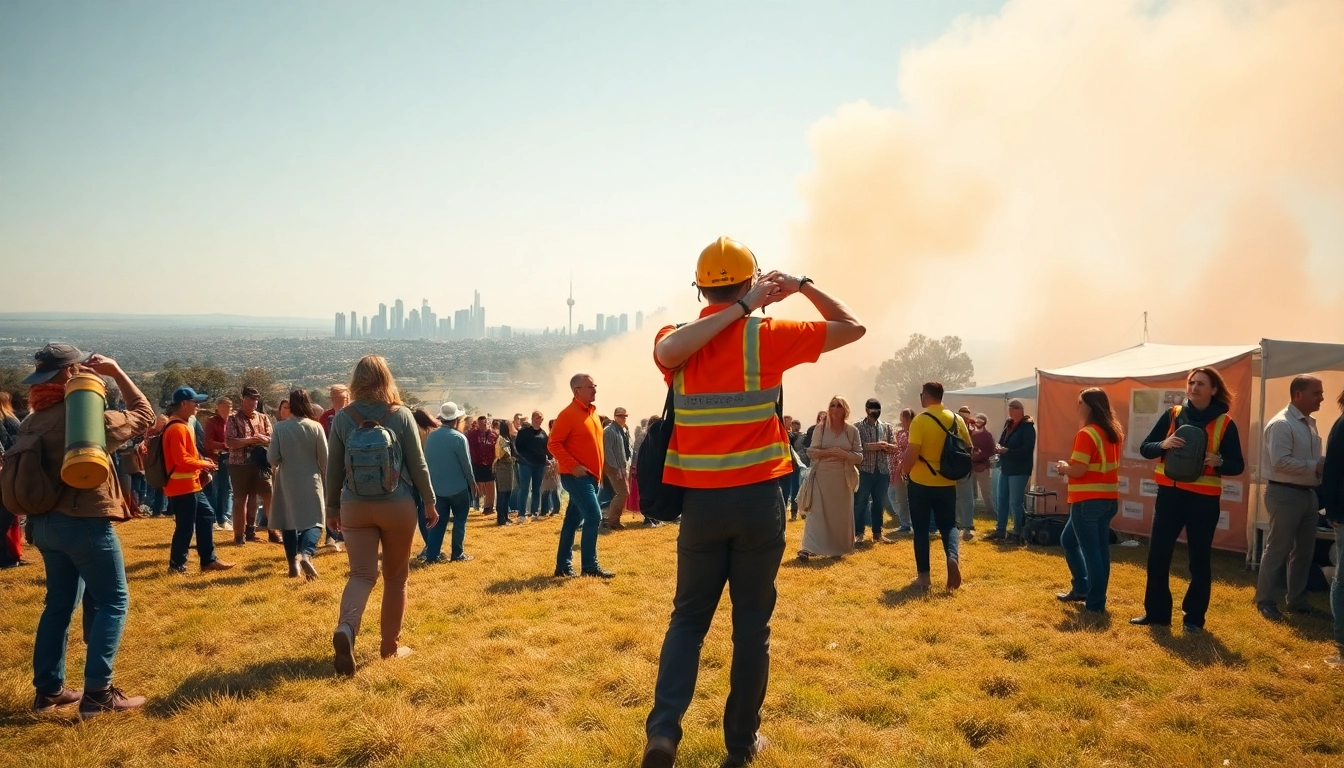Engage with the Community at a Wildfire Event Perth: Safety, Education, and Fun
Understanding Wildfire Events in Perth
Wildfire events in Perth play a significant role in raising awareness about fire safety, community resilience, and the overall impact of wildfires in the region. These events serve not only as educational platforms but also as opportunities for families and individuals to engage in crucial discussions surrounding fire prevention and preparedness. As a vibrant community, Perth organizes various activities that aim to inform, empower, and bring people together regarding wildfire-related issues. To learn more about participating in these impactful gatherings, consider attending a wildfire event perth.
What is a Wildfire Event Perth?
A wildfire event typically encompasses a range of activities designed to educate the public about the causes, effects, and prevention measures associated with wildfires. In Perth, these events may feature workshops, interactive exhibits, expert talks, and demonstrations related to fire management and safety practices. They aim to provide participants with important knowledge and skills to mitigate the risks of wildfires in both urban and rural settings.
Significance of Wildfire Events
The significance of wildfire events in Perth cannot be overstated. These gatherings embody a proactive approach to disaster preparedness, highlighting the need for education in fire safety and the importance of community involvement in prevention strategies. Through various engaging activities, these events foster a culture of safety and preparedness, ensuring that residents are equipped to handle potential wildfire situations effectively. Moreover, they promote dialogue between community members, emergency services, and local governments, galvanizing collective efforts to combat wildfire risks.
Common Attendees and Participants
Wildfire events draw a diverse audience ranging from families, educators, and students to emergency service personnel and local government representatives. This variety enriches the discussions and activities, allowing for a comprehensive exchange of knowledge. Families with children often participate to gain insight into fire safety, while educators may attend to acquire resources for teaching about fire prevention. Emergency services also take part to share expertise and resources, ensuring that the community is well-informed regarding fire safety practices.
Planning for a Successful Wildfire Event Perth
Organizing a successful wildfire event requires diligent planning and attention to multiple key considerations. By creating well-structured plans, organizers can ensure that the event fulfills its purpose and serves the community effectively.
Key Considerations for Organizers
When planning a wildfire event, organizers must consider logistics, objectives, and the target audience. Selecting a suitable venue that can accommodate anticipated attendees is crucial, as is ensuring accessibility for all participants. Additionally, developing a clear set of goals for the event—whether they be educational, community-building, or fundraising—will help guide the planning process. Collaborating with local fire departments, community leaders, and volunteers is another essential step to leverage resources and expertise.
Setting Up Safety Protocols
Given the focus on fire safety, establishing robust safety protocols is a vital aspect of planning any wildfire event. This includes ensuring the venue is equipped with adequate firefighting resources, emergency exits are clearly marked, and first aid stations are readily available. It may also be beneficial to conduct a risk assessment to pinpoint potential hazards and address them beforehand. Training volunteers and staff on emergency response measures is another step that contributes to a safe environment for attendees.
Engaging Local Communities
Engagement with local communities is paramount for the success of wildfire events. Organizers can achieve this by fostering partnerships with schools, community organizations, and local businesses. Utilizing social media and local advertising can also increase participation. Encouraging community members to share their own experiences and insights regarding wildfires can enrich discussions and foster a deeper communal understanding of the challenges presented by wildfires.
Activities and Attractions at Wildfire Event Perth
These events are typically filled with a variety of activities designed to inform and engage a wide audience. Each activity serves a unique purpose, enhancing the overall learning experience for attendees.
Educational Workshops and Seminars
Workshops and seminars are central components of wildfire events, offering attendees a chance to learn from experts in fire safety and management. Topics may cover the environmental impacts of wildfires, practical firefighting skills, and preparedness strategies for households and businesses. Interactive sessions where participants can engage directly with the material increase retention and application of the knowledge gained.
Interactive Safety Demonstrations
Interactive safety demonstrations provide hands-on learning experiences for participants. These can include live demonstrations of firefighting techniques, showcasing essential equipment and safety gear, and perhaps the use of simulation tools for understanding fire behavior. Such experiences are invaluable for reinforcing safety messages and imparting practical skills, ensuring that attendees leave better prepared for wildfire scenarios.
Fun Activities for All Ages
In addition to educational components, wildfire events also incorporate fun activities to engage families and younger audiences. Activities such as face painting, scavenger hunts focusing on fire safety tips, and games that teach children about the importance of fire prevention can create a wholesome atmosphere. By blending education with entertainment, organizers can foster a positive learning environment that resonates with attendees.
Promoting Awareness and Prevention
One of the main purposes of wildfire events is to promote awareness about fire safety and prevention. These initiatives are crucial in equipping communities with the knowledge necessary to mitigate wildfire risks.
Importance of Fire Safety Education
Fire safety education is vital for fostering a culture of preparedness within communities. Educating the public about the causes and consequences of wildfires, as well as promoting safe practices, can significantly reduce the likelihood of outbreaks. Workshops that cover topics such as creating defensible space around properties, understanding fire weather warnings, and recognizing risky behaviors can empower individuals to take responsibility for their safety and that of their surroundings.
Community Involvement in Fire Prevention
Active community involvement is crucial for effective wildfire prevention. Residents who participate in neighborhood fire prevention groups or local discussions can share valuable insights and collaborate on initiatives to enhance community resilience. Events that encourage volunteers to help clean up fire-prone areas, promote community fire plans, and engage in awareness campaigns can cultivate a greater sense of responsibility and ownership over fire safety.
Resources for Fire Preparedness
Providing access to resources and materials aimed at fire preparedness is an essential element of wildfire events. Distributing pamphlets, checklists for fire safety, and contacts for local fire services can empower community members to take actionable steps toward preparedness. Facilitating access to online resources, toolkits, and apps can also enhance knowledge and preparedness among diverse demographics.
Post-Event Evaluation and Follow-Up
The conclusion of a wildfire event does not signal the end of engagement; rather, it is a critical juncture for evaluation and continuous improvement. Assessing what worked well and what needs adjustment is essential for future planning.
Gathering Feedback from Attendees
Feedback from participants can yield invaluable insights into the effectiveness of the event. Utilizing surveys, suggestion boxes, and informal interviews can help organizers gauge attendee satisfaction and understand areas for improvement. This input is critical for adapting future events to better meet the needs and expectations of the community.
Assessing Impact and Success
Evaluating the overall impact of the event involves analyzing metrics such as attendance numbers, engagement levels during activities, and the reach of educational materials distributed. Tracking this data helps organizers measure success against the objectives set before the event and provides concrete information that can be used in reporting back to stakeholders.
Planning Future Wildfire Events
Using insights from evaluations and community feedback, organizers can develop plans for future wildfire events that are even more impactful and relevant. Continued engagement with the community and stakeholders ensures that future activities focus on pertinent issues and leverage the lessons learned from previous experiences.



